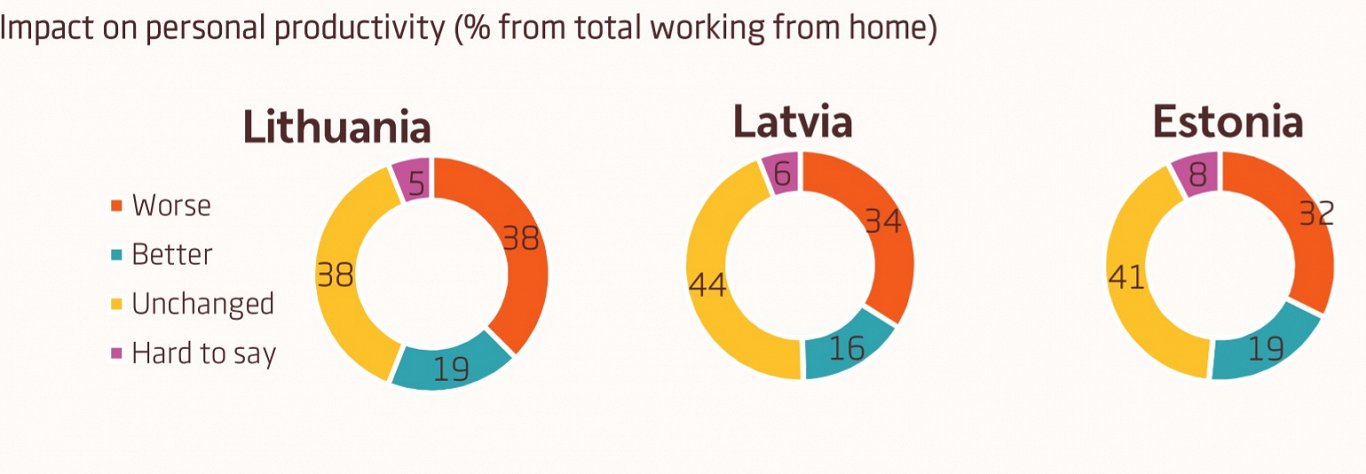The results suggest that although half of those surveyed had no previous experience of remote working, they took to it fairly easily.
"We performed a pan-Baltic level analysis, evaluating workers’ productivity and well-being. Results indicate that around 40% of respondents did not notice any change in their productivity, while a decrease was reported by one-third of respondents. Reasons for productivity losses include lack of cooperation with colleagues and juggling between work and household chores/parenting, as well as missing necessary work equipment," Swedbank said.
Around one in five people managed to improve their work efficiency. Worker creativity and stress levels improved in general, while it became harder to ensure work-life balance.

"Most of the factors dampening productivity of teleworking are pandemic-related and will go away, as the pandemic gradually retreats. Schools and kindergartens will reopen. Social distancing requirements will be lifted. In addition, we will be more familiar and more adapted to deal with the peculiarities of telework. In “normal times” remote work can potentially increase the efficiency and flexibility of the labour market and improve work satisfaction, as well as save costs. However, success of the work-from-home approach is not guaranteed without a combined effort from workers, employers, and policymakers," the bank concluded.
The full report goes into considerably more depth and is available to read online.





























